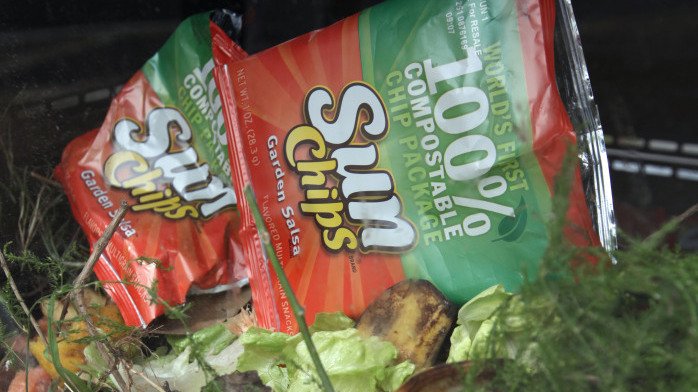SunChips, the popular multigrain snack brand owned by Frito-Lay, faced unexpected backlash in the early 2010s when it introduced an environmentally friendly bag that turned out to be unusually loud. While the bag was designed with good intentions—to reduce plastic waste and improve sustainability—it ended up annoying consumers due to the excessive noise it made when handled. This article explores the story behind the SunChips loud bag, the science behind the noise, the public reaction, and why Frito-Lay ultimately decided to pull the product from shelves.
The Introduction of SunChips’ Loud Bag
A Push for Sustainability
In 2010, SunChips introduced a new compostable bag made from plant-based polylactic acid (PLA), a material derived from cornstarch. The goal was to create a bag that would break down more easily in compost, aligning with growing consumer demand for eco-friendly products.
- The PLA-based bag was marketed as 100% compostable and capable of breaking down in a commercial composting facility within 14 weeks.
- Frito-Lay promoted the bag as a major step forward in reducing plastic waste in the snack industry.
A Noble Goal with Unintended Consequences
Despite the positive environmental impact, the new SunChips bag had one major flaw—it was extremely loud.
- The bag produced a crinkling noise measuring around 95 decibels—about as loud as a motorcycle engine or lawnmower.
- The noise was so disruptive that consumers began recording videos of the bag’s loudness and posting them online, turning the issue into a viral sensation.
Why Was the SunChips Bag So Loud?

The Science Behind the Noise
The loud crinkling noise stemmed from the structural properties of the PLA material.
- PLA is more rigid than traditional plastic, which causes it to transmit sound more efficiently when bent or compressed.
- The molecular structure of PLA creates high-frequency vibrations when the bag is handled, amplifying the noise.
- Frito-Lay had not anticipated that the material’s stiffness would lead to such an unpleasant sound.
Comparison to Regular Plastic Bags
Traditional plastic snack bags are made from polypropylene, which is softer and more flexible than PLA.
- Polypropylene absorbs sound and vibrations better, resulting in a quieter handling experience.
- The compostable PLA material, while environmentally friendly, lacked the sound-dampening properties of polypropylene.
Consumer Backlash and Public Reaction
Complaints from Customers
The loudness of the SunChips bag quickly became a major issue for consumers:
- Many complained that the bag was so loud it disrupted conversations and made it difficult to eat the chips quietly.
- Customers took to social media and online forums to voice their frustration.
- One YouTube video titled “SunChips Bag is Too Loud” went viral, garnering over 1 million views and drawing further attention to the issue.
Media Attention
The controversy attracted significant media coverage:
- CNN described the SunChips bag as “a noise machine disguised as a snack bag.”
- Late-night talk show hosts like Jimmy Kimmel and David Letterman poked fun at the situation in their opening monologues.
- The issue became a cultural joke, with memes and parody videos spreading rapidly.
Impact on Sales
The negative publicity had a direct impact on SunChips’ market performance:
- Frito-Lay reported a 10% decline in SunChips sales in the months following the launch of the loud bag.
- Focus groups indicated that customers were avoiding SunChips specifically because of the bag noise.
Frito-Lay’s Response and the Bag’s Fate
Attempt to Fix the Problem
Frito-Lay initially tried to address the issue by tweaking the bag design:
- Engineers attempted to adjust the PLA formulation to reduce stiffness and noise.
- However, early prototypes failed to significantly reduce the decibel level.
Pulling the Loud Bag from Shelves
By 2011, Frito-Lay decided to pull the compostable bag from most SunChips product lines:
- The company reverted to traditional plastic packaging for most SunChips products.
- Frito-Lay issued a statement acknowledging the noise complaints and promised to explore quieter sustainable materials.
Partial Comeback
In 2014, Frito-Lay reintroduced a quieter version of the compostable bag using a modified PLA formula:
- The new bag reduced noise levels to around 70 decibels—similar to a normal conversation.
- The quieter bag was initially introduced for select flavors and test markets before a broader rollout.
Lessons Learned from the SunChips Bag Controversy
1. Balancing Sustainability and Usability
The SunChips bag controversy highlighted the importance of balancing environmental responsibility with consumer experience.
- While customers value sustainability, they are unlikely to accept trade-offs in convenience and comfort.
- Packaging innovation requires thorough consumer testing to identify potential issues.
2. Importance of Consumer Feedback
Frito-Lay’s quick response to consumer complaints demonstrated the importance of listening to customer feedback.
- By responding to complaints and modifying the product, Frito-Lay was able to recover from the initial backlash.
3. Public Relations and Crisis Management
The SunChips bag controversy became a case study in public relations and crisis management:
- Frito-Lay’s willingness to acknowledge the problem and adjust course helped restore consumer trust.
- Engaging with customers on social media allowed the company to control the narrative and rebuild brand loyalty.
Current State of SunChips Packaging
Use of Sustainable Materials
Today, SunChips continues to use eco-friendly materials in its packaging:
- The current bag design incorporates recycled materials and plant-based polymers.
- Noise levels have been reduced to align with customer expectations.
Success Despite the Setback
Despite the controversy, SunChips remains one of the top-selling multigrain snack brands in the U.S.:
- Annual sales exceed $400 million.
- SunChips has maintained a strong market presence, particularly among health-conscious consumers.
Final Thoughts
The SunChips loud bag controversy remains one of the most memorable product missteps in recent history. While the environmentally friendly design was innovative, the excessive noise proved to be a deal-breaker for many consumers. Frito-Lay’s ability to pivot and modify the product ultimately preserved SunChips’ reputation and market position. The case serves as a reminder that even well-intentioned product innovations can backfire if they disrupt the customer experience
TPBank’s Financial Success: What’s Driving Its Stock Price Higher






